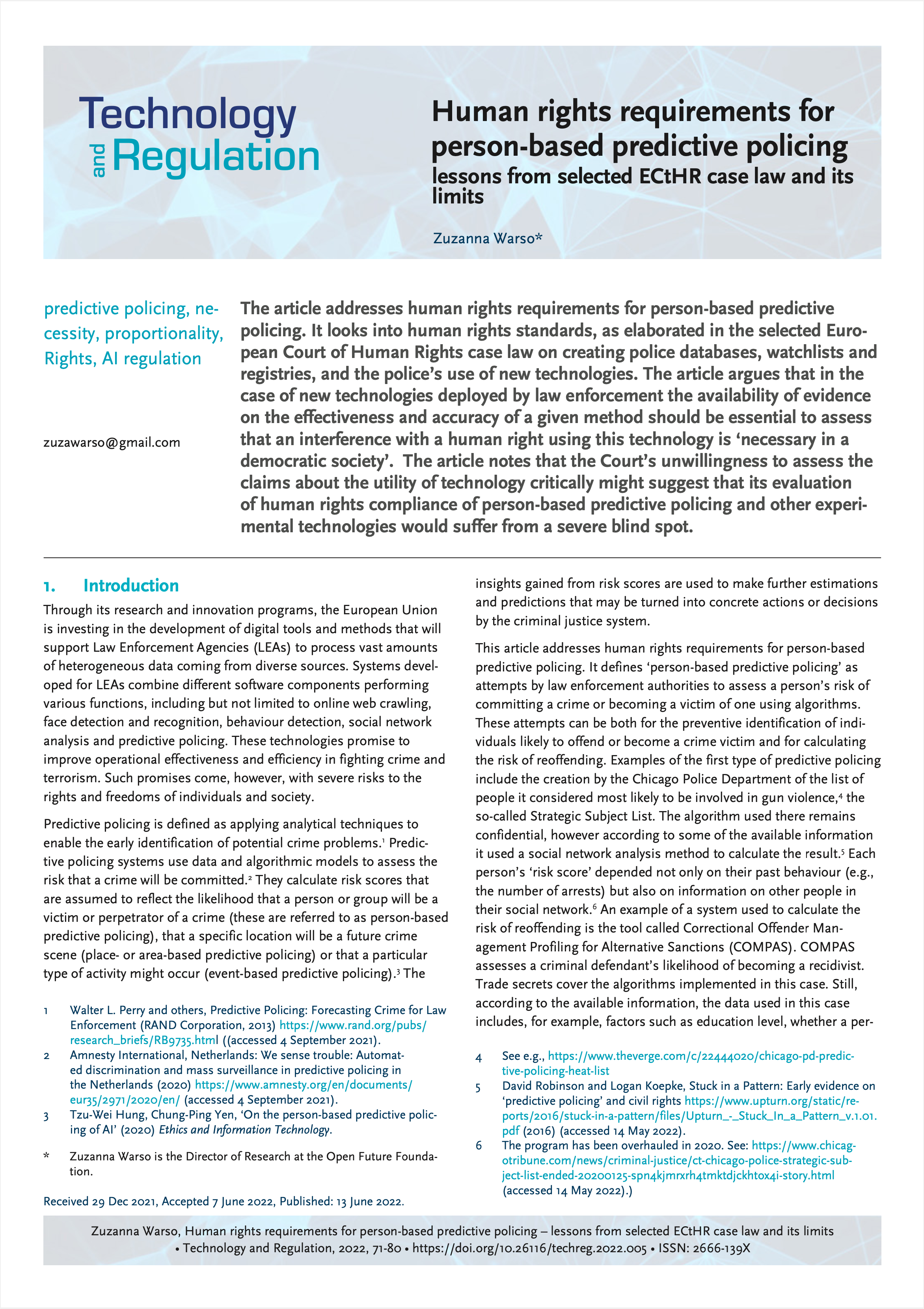Human rights requirements for person-based predictive policing
lessons from selected ECtHR case law and its limits
DOI:
https://doi.org/10.71265/11d12046Keywords:
predictive policing, human rights, right to privacy, European Court of Human Rights, European Convention on Human Rights, necessity, proportionalityAbstract
The article addresses human rights requirements for person-based predictive policing. It looks into human rights standards, as elaborated in the selected European Court of Human Rights case law on creating police databases, watchlists and registries, and the police’s use of new technologies. The article argues that in the case of new technologies deployed by law enforcement the availability of evidence on the effectiveness and accuracy of a given method should be essential to assess that an interference with a human right using this technology is ‘necessary in a democratic society’. The article notes that the Court’s unwillingness to assess the claims about the utility of technology critically might suggest that its evaluation of human rights compliance of person-based predictive policing and other experimental technologies would suffer from a severe blind spot.
Downloads

Downloads
Published
Versions
- 17-06-2022 (3)
- 13-06-2022 (2)
- 13-06-2022 (1)
Issue
Section
License
Copyright (c) 2022 Zuzanna Warso

This work is licensed under a Creative Commons Attribution-NonCommercial-NoDerivatives 4.0 International License.






